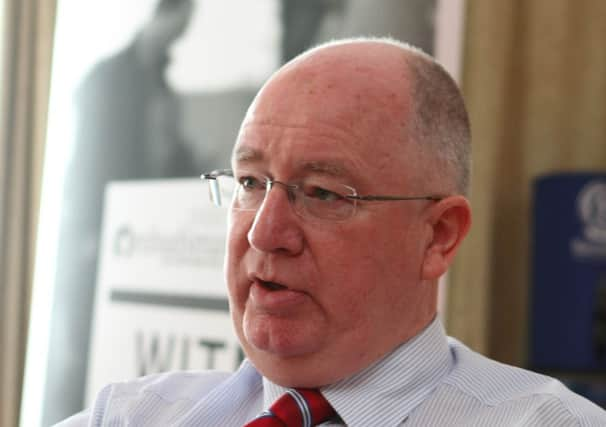Good Neighbour Bombing, complaint at Ombudsman’s report


And the association has said until certain conditions are met, it regrettably can no longer encourage its members to engage with the Ombudsman in the investigation of historical incidents, where breaches of the European Convention on Human Rights are alleged.
On August 31, 1988, an explosion took place in Creggan, Londonderry, killing two people instantly and seriously injuring a third who died later. The device had been a booby trap bomb placed in the first floor flat, the single male occupant of which had earlier been kidnapped by the Provisional IRA. Three neighbours went to the flat, not having seen the occupant for six days. After one of them entered the flat an explosion demolished the building.
Advertisement
Hide AdAdvertisement
Hide AdSean Dalton and Sheila Lewis were killed in the blast which became known as the ‘Good Neighbour Bombing.’ Thomas Curran died later.
The Provisional IRA said it had booby trapped the flat in an attempt to kill members of the security forces and apologised to the families of those who were killed.
The occupant of the flat and a friend who was staying with him later told how they had been kidnapped and held for six days by masked men, only being released after the explosion had taken place.
Six years later the relatives of Sean Dalton claimed the police had been negligent in allowing civilians to approach the flat, alleging the police were aware that it had been booby-trapped. This led to a number of complaints being lodged with the Police Ombudsman, one of which was that under Article 2 of the European Convention on Human Rights the police failed in their responsibilities to uphold Mr Dalton’s right to life.
Advertisement
Hide AdAdvertisement
Hide AdOn July 10, 2013, the Police Ombudsman published a Section 62 Public Statement that there was a failure by the police to uphold the right to life of Mr Dalton.
Former Assistant Chief Constable, Raymond White, an Executive member of the NIRPOA said: “The determination that the police failed in their responsibilities to uphold Mr Dalton’s right to life was said to have been reached on the balance of probabilities, which are evidence based and drawn from all sources of information available.
“It is this claim of being evidence based amongst others, which the NIRPOA seeks to show in a detailed analysis of the events leading up to the fatal explosion, that is flawed and as a consequence, the Ombudsman has in the opinion of the association misdirected himself both as to fact and to the law.
“In the view of the association the lack of investigative rigour in the eight-year long inquiry resulted in facts, which were not relevant to the process, becoming an integral part of the alleged evidential package considered by the Ombudsman. The outcome of this was a failure on the part of the Ombudsman to apply the evidential test to the relevant facts i.e. those known to the police before the fatal incident or which reasonably should have been known to them.
Advertisement
Hide AdAdvertisement
Hide Ad“An allegation that Article 2 of the ECHR has been breached is a very grave and complex issue to be addressed.
“We have published a 30 page detailed rebuttal of the Police Ombudsman’s findings and demand the Section 62 Statement be rescinded.
“Our response also identifies major legal and procedural failings in the operation of the Police Ombudsman, with regard to the conduct of investigations alleging breaches of Article 2 of the ECHR. We ask to have all such Section 62 Statements halted until the introduction of an appropriate and independent legal mechanism for assessing evidence.
“The response again highlights the need for an independent appeals and complaints mechanism in relation to the Police Ombudsman, as required by Article 13 of ECHR, something which this association has been requesting for over five years.
Advertisement
Hide AdAdvertisement
Hide Ad“Until the above three conditions have been met, this association regrettably, can no longer encourage its members to engage with the Police Ombudsman in the investigation of historical incidents, where breaches of the European Convention on Human rights are alleged.”
“For the past decade the association has been a consistent supporter of the principle of there being in place an independent and professional investigation body to examine complaints against the police and to this end NIRPOA has until now, consistently encouraged its members to cooperate in historical investigations so that the true facts, in such cases, are made known. “
Copies of the NIRPOA rebuttal have also been sent to the Attorney General, the Chief Constable of the PSNI and the Police Ombudsman.